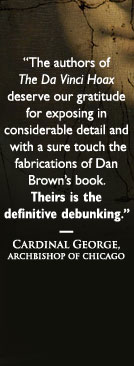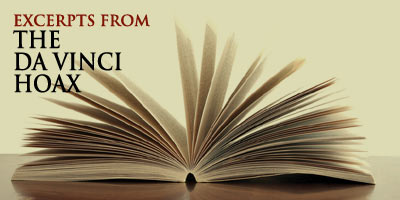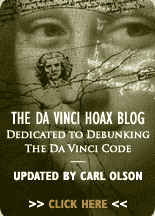



Introduction: The Da Vinci Code Phenomenon
The immense success of The Da Vinci Code and its strong language about early Christianity and the Catholic Church has resulted in substantial controversy over many of the "facts" within its pages. Not only is the novel influencing the views of non-Christian readers, it is raising difficult questions in the minds of many Christians, some of whom are being asked about Brown’s interpretation of Church history and theology. One such reader recently wrote to us, saying: "I own a Catholic bookstore. We are getting bombarded daily by people who are buying into the garbage in this book. You cannot believe how many people have been exposed to this book. . . . We even had an elderly aunt talking about Opus Dei tonight and yelling at us that the book is true or it couldn’t be printed." Another reader openly admitted the doubts that The Da Vinci Code has raised in his mind:
Sadly, it’s not surprising that a work of fiction has produced confusion among some Christians about Church history and doctrine at a time when catechesis and basic knowledge of the Faith are so poor. It is even less surprising that non-Christian readers would be taken in by Brown’s revisionist history of the Church. After all, it’s a demonstrated fact that most Americans are illiterate about major events in the history of their own country. For example, one recent study of historical literacy among young Americans found that most "College seniors could not identify Valley Forge, words from the Gettysburg Address, or even the basic principles of the U.S. Constitution". So why should we expect them to be able to discern fact from fiction when it comes to early Church history and the complex debates over the divinity and person of Jesus Christ that took place in the first four centuries of the Church? An example of this is a recent online article about a Catholic discussion group meeting to discuss The Da Vinci Code at a Catholic parish. The author of the article, David Rotert writes:
Fiction, especially best-selling popular fiction such as The Da Vinci Code, has become a major means of "educating" the masses about many, varied topics, but especially issues that are controversial and can be easily sensationalized. The belief that Jesus was married to Mary Magdalene, had children, and was not divine has existed for several decades in American pop culture and can even be traced back to feminist groups in the nineteenth-century. Yet many, if not most, readers of Brown’s novel seem unaware of this–even though the novel provides the titles of several books written in the last two or three decades proposing such beliefs.
WANT TO READ MORE? ORDER THE DA VINCI HOAX NOW! CLICK HERE

